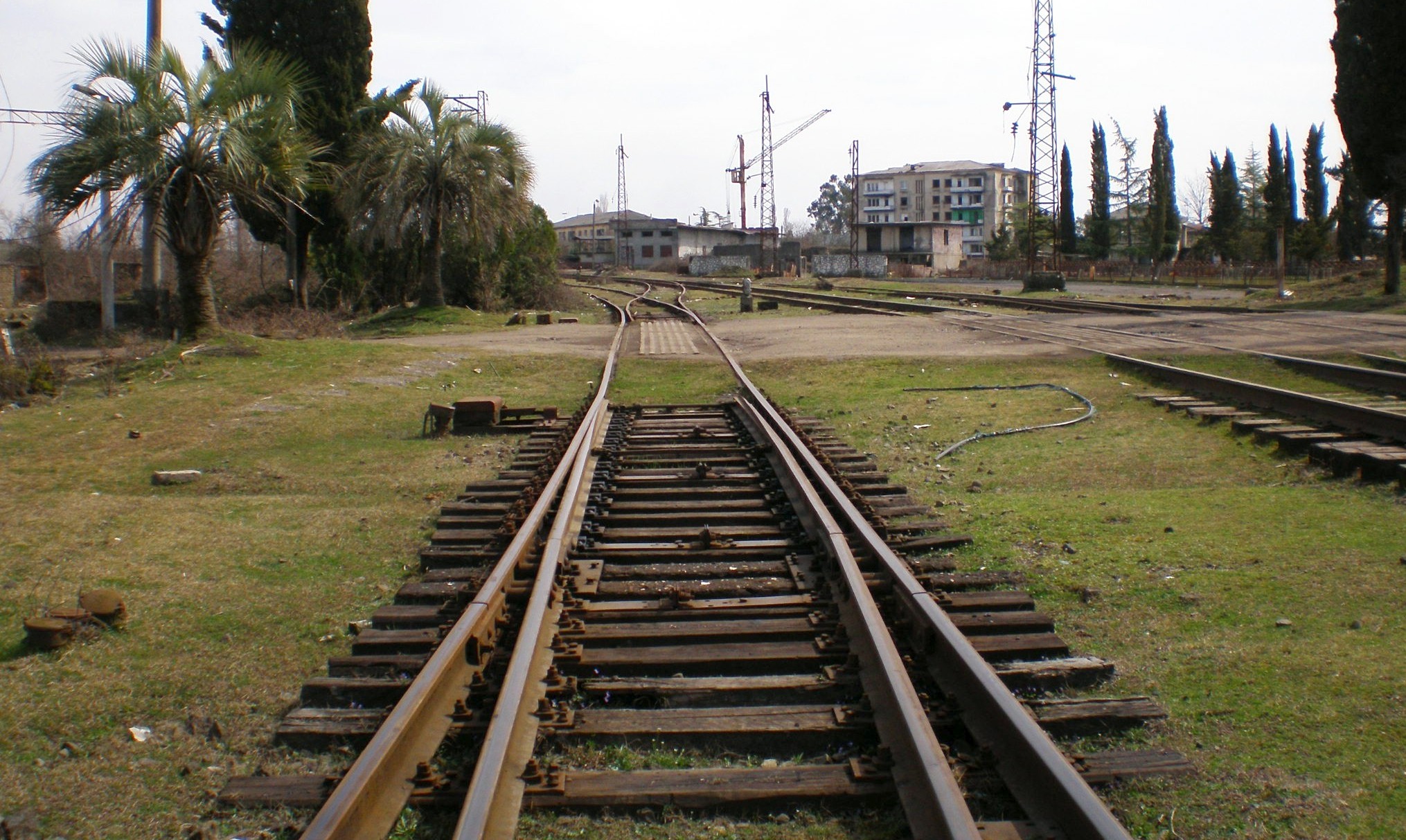
Russian-Abkhaz Agreement: What Is Moscow’s Plan for Georgia?
Publication: Eurasia Daily Monitor Volume: 11 Issue: 214
By:

Georgian authorities are trying to devise new tactics and a new style of relations with Moscow after the November 24 signing of the Russian-Abkhazian agreement On Alliance and Strategic Partnership (Kavkavsky Uzel, November 24; see EDM, October 29, November 24). However, with Western leaders currently preoccupied by the existential issue of Russia’s war against Ukraine, Georgian politicians have been limiting their reaction to verbal—albeit quite harsh—statements. For example, President Giorgi Margvelashvili called the agreement “a step toward the annexation of Abkhazia, which further aggravates the situation in the South Caucasus and pushes the process of the normalization of ties between Georgia and Russia toward deadlock” (Civil Georgia, November 25). Prime Minister Irakli Garibashvili stated that “an unequivocal step taken by Russia toward the actual annexation of Abkhazia, poses a serious threat to security in the region and Europe as a whole” (Civil Georgia, November 25).
Nevertheless, the Georgian government has not taken any actual political steps in response to Russia’s actions, such as formally joining the international sanctions regime against the Russian Federation. Nor has Tbilisi cut off its dialogue with Moscow by suspending the diplomatic talks between the personal representative of the prime minister of Georgia for Russia, Zurab Abashidze, and deputy minister of foreign affairs of the Russian Federation Grigory Karasin. “Eliminating this format would be a reckless and counterproductive decision. Even if it does not yield many results, this format is needed to retain a ‘space for dialogue,’ ” Abashidze told Jamestown (Author’s interview, November 24).
The new agreement between Russia and Abkhazia contains clauses that pose a risk for Georgian statehood. Indeed, the accord indicates that Moscow plans to step up pressure on Tbilisi to allow Russia’s advance toward the south, to its strategic ally in the region, Armenia. Recently, the Armenian government announced its willingness to participate in the implementation of President Vladimir Putin’s signature regional integrationist project, the establishment of the Eurasian Union.
An outstanding complication to Putin’s plan, however, is that the Russian Federation and Armenia do not physically border each other, as they are separated by Georgia. Russian and Armenian politicians and experts quite openly call this geographic reality “a serious obstacle” for Armenia’s full-fledged participation in the Customs Union of Russia, Kazakhstan and Belarus—which is set to be transformed into the Eurasian Union at the start of 2015 (lragir.am, September 26).
Even though the Russian-Abkhazian agreement says nothing about the north-south railway link between Russia and Armenia, Putin has openly emphasized the importance of reconstructing this railroad corridor, which passes directly through Abkhazia and Georgia-proper (cbw.ge, November 25). Many in Georgia perceived Putin’s statement as an ominous sign. The Georgian side has never given its permission to start rebuilding this railway route, remembering well that in the spring of 2008, a few months before the war around South Ossetia, Russia deployed “Russian army corps of engineers” to Abkhazia under the pretext of repairing the railway. To “safeguard” the military engineers, airborne troops of Russia under the command of General Vladimir Shamanov were deployed in Abkhazia as well. These troops eventually invaded western Georgia from the territory of Abkhazia. It is noteworthy that the Russian-Abkhazian agreement signed on November 24, envisages the establishment of a common Russian-Abkhazian military group, which would take up joint actions against the “common enemy”—Georgia.
These circumstances and the overall context raise suspicions that to “advance toward the south” and to integrate Georgia into its geopolitical projects, Moscow plans to use Abkhazia and South Ossetia as footholds for putting pressure on Tbilisi. Russia may even be planning a new military incursion into the non-occupied territory of Georgia.
According to Georgian Minister of Reconciliation and Civil Equality Paata Zakareishvili, “This [Abkhazian-Russian] agreement threatens us,” but it does not represent a new Russian policy. “Moscow continues the 2008 strategy of occupation and annexation,” Zakareishvili told Jamestown on November 27.
The “Russian-Abkhazian Treaty” also envisages an increased presence of Russian security officials at the de facto Georgian-Abkhazian border. Ethnic Georgians that reside in Abkhazia’s Gali district routinely cross that frontier (Human Rights Watch, July 15, 2011). Abkhazian authorities have so far turned a blind eye to this practice because through this channel relatively cheap food and other produce from western Georgia arrive at local markets. However, after the complete opening of the Abkhazian-Russian border (as mandated by the November 24 agreement) and the shift of Russian border guards from the Psou River, separating Abkhazia from Russia, to the Enguri River, which separates Abkhazia from Georgia, the Abkhazians will lose interest in trading with Georgia. Taking advantage of that, Moscow could then blackmail Tbilisi, threatening to shut down the Georgian-Abkhazian border completely. This would mean “locking up” the ethnic Georgians in Gali district or, even worse, carrying out ethnic cleansing there, forcing all Georgians to leave Gali and creating tens of thousands of new refugees (see EDM, September 3).
Alternatively, Moscow may demand from Irakli Garibashvili’s government, at a minimum, consent for the reconstruction of the railway link to Armenia or, at a maximum, the renunciation of Georgia’s pro-Western course and a pledge to join the Eurasian Union. Russia’s growing military presence in Abkhazia will further strengthen the Kremlin’s leverage over these issues.
“Russia evidently is gearing up for new aggression against Georgia and is waiting only for a pretext or a situation when this can be carried out with the least possible costs. The signing of the Russian-Abkhaz agreement indicates that. So, the threat actually exists and it will keep growing,” Mamuka Areshidze, a local expert on Caucasus issues, told Jamestown (Author’s interview, November 27).
At the same time, some Georgian experts warn against becoming overly hopeful about the Russian economy weakening as a result of Western sanctions, the drop in oil prices, or the Russian ruble’s devaluation. “Under these conditions, Putin may indeed be forced to retreat from Donbas [eastern Ukrainian region encompassing the Donetsk and Luhansk provinces] and stop helping the separatists in Donetsk and Luhansk,” argues analyst Nika Imnaishvili. “But the risks for Georgia from such a retreat will only increase because the Russian autocratic leader will certainly try to compensate for ‘losing face’ in the eyes of Russians by carrying out a ‘small victorious war’ in Georgia, which is ten times smaller than Ukraine and much farther from Europe,” Imnaishvili, predicted (Author’s interview, November 27). And as Abkhazia becomes ever more integrated into the Russian political-economic-security space, the existential threat to Georgia will continue to grow.




